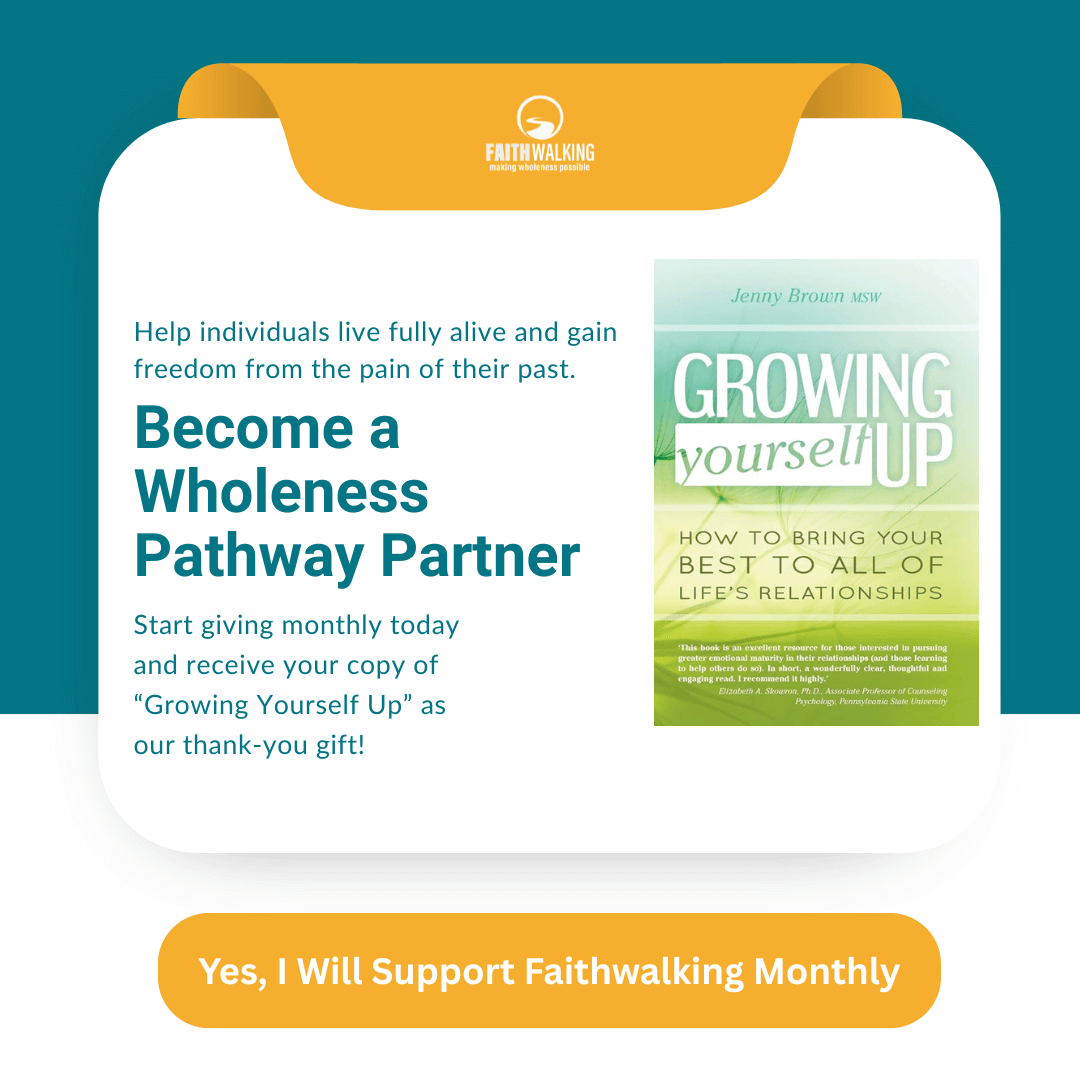Joe Probst knows what it’s like to be sick. Born 10 weeks early, he was chronically ill from birth well into his teenage years. He suffered a range of health issues resulting from a compromised immune system, including bronchitis, allergies, and asthma. Being the youngest son in a family of four boys, Joe was always the smallest and the weakest.
Mom tended to fawn over Joe. Constantly worried about his frail health, she kept him inside a lot, and Joe missed out on many activities. Dad was a jock and wasn’t sure what to do with a sickly son; he was there physically but distanced emotionally from the son with whom he could not relate. Both parents had the pressures and financial stress of raising a large family, and Joe’s dad always seemed angry and disengaged. On top of that, Joe’s next-oldest brother became jealous of all the attention he was getting due to the illnesses, so they fought a lot. Joe never won any of those fights.
At an early age, Joe developed defense mechanisms of isolation and performing well for recognition in order to help him cope with feeling weak and less worthy. When he was older, his mother told him how at three years old he went from talking up a storm one day to hardly talking at all the next day or any day after. As he entered elementary school he found that the easiest path to getting along and staying out of trouble was to withdraw. “I just found the best way to cope was to steer clear of everybody,” Joe explains. “I started focusing on doing well in school, and I achieved success there. But I did everything alone.”
“I just found the best way to cope was to steer clear of everybody,” Joe explains. “I started focusing on doing well in school, and I achieved success there. But I did everything alone.”
The combination of the dynamics of his family life, a religious environment that was focused on rituals, and a school and home environment that offered praise for achievement contributed to crystallizing his defense mechanisms into the following two vows:
1. I must out-perform those around me in order to find worth and acceptance.
2. I must isolate myself in order to protect myself from physical and mental harm.
These two vows led to a life of workaholism and separation from others. Those behaviors were his defensive routines, or destructive habits that grew out of his vows. Joe’s self-isolation led him to be a loner and a perfectionist. This behavior made him an excellent employee but weakened him as a father, husband, and friend.
Joe’s first Faithwalking 101 retreat helped him name these particular vows. “101 was the first time I consciously understood the meaning I had tied to the relationship with my dad, which had the most impact in shaping me as a person. Basically, I believed that he didn’t love me. It wasn’t true, but his emotional distance and the lack of commonalities between us made me think that it was true.”
Today Joe is committed to Faithwalking. The 101 retreat was so impactful that he’s gone through it five more times—but now as a small group leader. He has also participated in 201, 301, the leadership course, and is now a 201 coach. He will soon begin apprenticing as a presenter for both 101 and 201.
How did a workaholic make that much time for Faithwalking? “It all comes down to priorities,” Joe states. “We’re all busy. But we have these habits that we create out of our vows and the meaning we associate with them. We try to play God, unconsciously or consciously, trying to meet our own needs with ‘fill-in-the-blank’. A vow becomes a habit that I liken to a low-grade infection in your body. You may not even recognize that it’s there, but it’s sin in your life that keeps you from experiencing your life to the full. If you go through the process and expose the infection, you end up getting more out of life; you end up being more effective. You can’t afford NOT to become well.”
For someone who has spent much of his life being sick, Joe knows he can’t afford NOT to get healthy. And he is healthier all-around. Joe no longer struggles with chronic illness and he has been able to better identify and manage sources of anxiety, which has deepened his relationships with others as well as his faith. “I still struggle with the need to perform and the desire to isolate myself, but I am getting better at overcoming both through the help of the Holy Spirit.”
“I am indebted to Faithwalking,” he says. “Faithwalking has had a profound impact on my life. I want to share that impact with others.”
Has Faithwalking made an impact in your life? We would love to hear how in the comments below.


